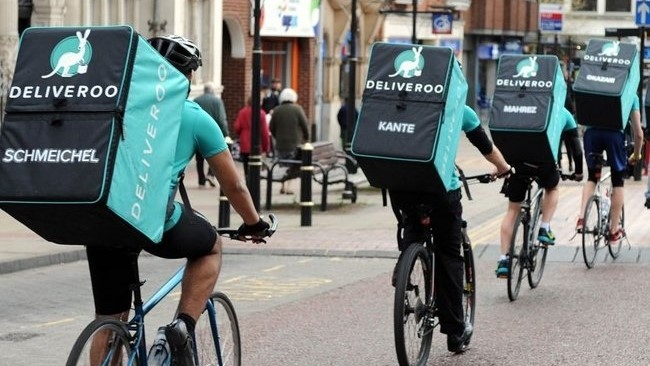



Food transporters are gig workers. (Photo: EULAWANALYSIS)
The impact on the world economy is a big question for managers, experts and labourers. If the epidemic persists, many labourers will have to face the risk of a complete inability to fund their lives.
Different from traditional economy of full-time workers, the gig economy refers to independent and temporary employees and freelancers. Therefore, they do not enjoy the same employment benefits as those in the traditional economy.
Thanks to the development of information technology, many workers now have more opportunities to jobs with a flexible income and working time. Taxi drivers and transporters for technology companies such as Uber and Grab are typical examples. In addition, temporary lecturers at universities and colleges, tutors, street artists, waiters at restaurants, MCs, writers and painters are also jobs in the gig economy. The gig economy is a new trend in the world with a proportion of total workers accounting for around 10% in the US, 8.5% in Australia and 10% in Singapore.
In a context where a global economic recession continues and nations have imposed restrictive measures to prevent the spread of Covid-19, gig economy workers are the first people to be impacted. The gig workforce in Australia and Singapore are estimated to be losing about US$215 million in income due to the postponement and cancelation of events and the reduction of services.
Meanwhile, gig workers in the US have also faced a reduction of over 50% of their income. Many employees are no longer able to afford their daily cost of living, while many others face the choice between earning money and the risk of infection. Labourers in the gig economy have to bear more market risk due to economic ups and downs, changes in trends and consumer preferences than those in the traditional economy.
In addition to an instable income, gig workers are not entitled to benefits as in the traditional economy, including pensiona, sick leave regulations and health insurance. In a wobbly economy, these benefits are insurance for workers. Recognising that workers lack protection from the impacts of the Covid-19 pandemic, many organisations have developed many supportive measures. For example, Uber has provided a 14-day paycheck per month for workers who have been infected with Covid-19 or quarantined in line with the Government’s directives. Several other companies and corporations have also changed their welfare policies on sick leave for seasonal employees. However, the cost of living of many gig workers cannot be guaranteed.
The only "lifesaver” for gig workers amidst Covid-19 is bailouts from governments. Many relief packages have been adopted, including supportive payments for people who have lost income. However, governments should urgently supplement legal frameworks so that the employees in the gig economy have the same chance to acess support as workers in the traditional economy.
Source: NDO